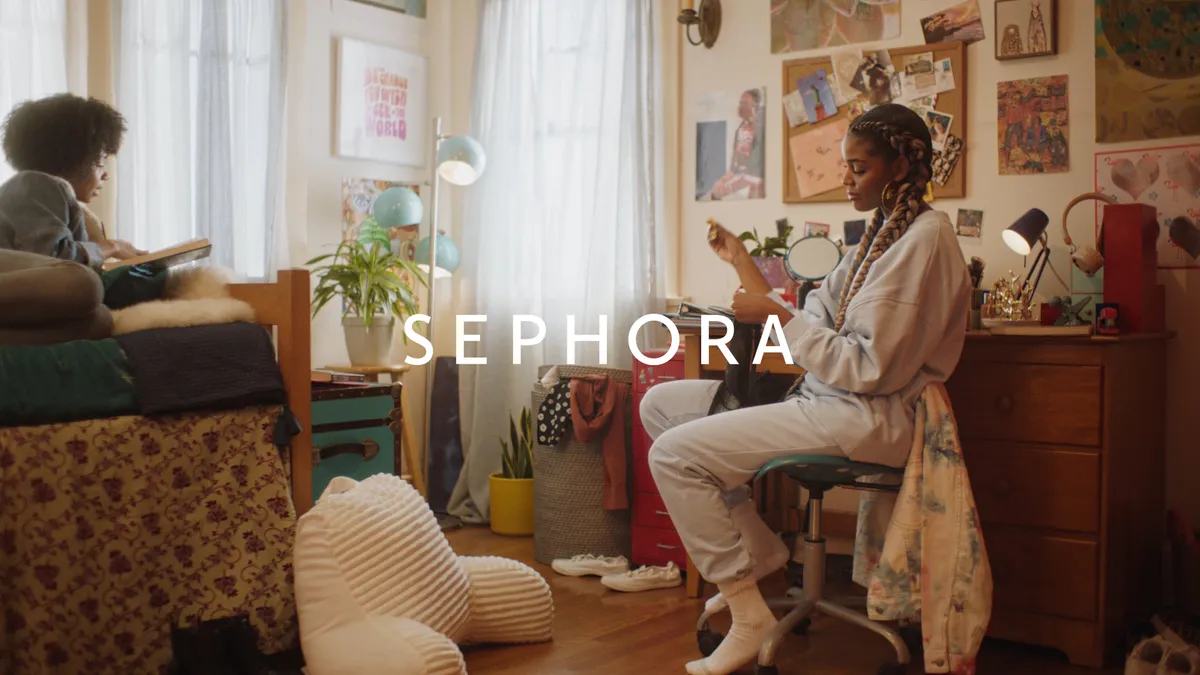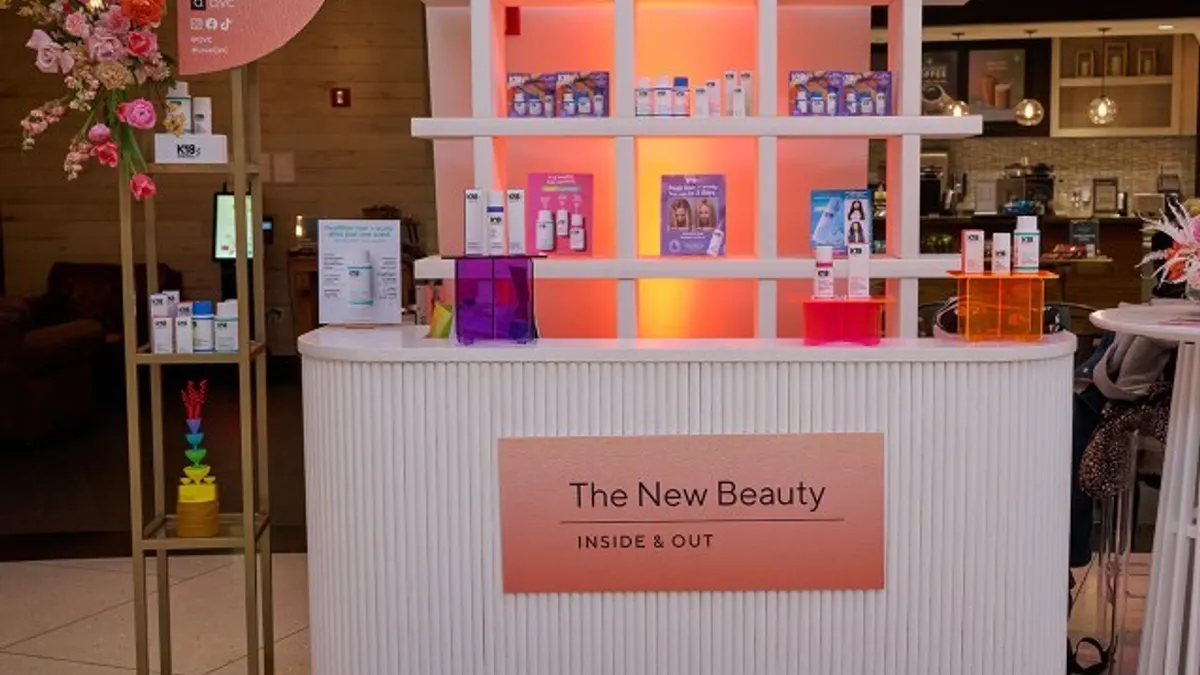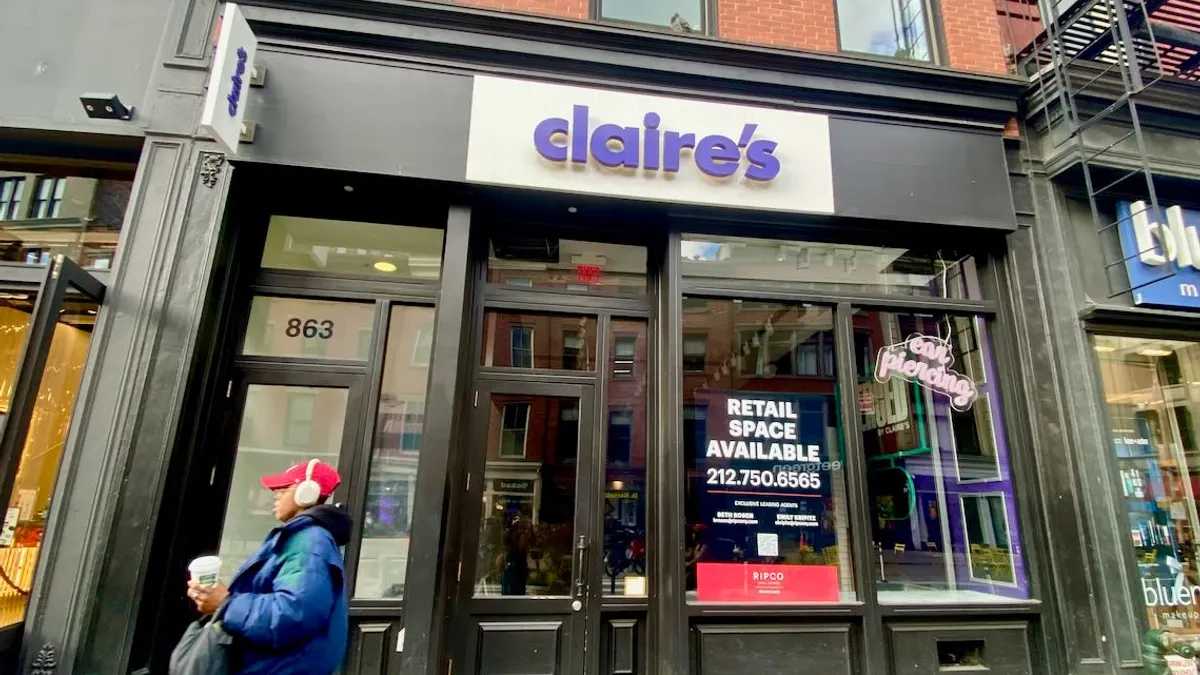"What is beauty without Black beauty? Its influence is universal. There'd be no cut creases or beat faces without these legendary icons."
That's how Sephora's "Black Beauty is Beauty" spot begins, and it's a sign of how the beauty retailer is trying to incorporate more diversity into its marketing at large. The short film, released earlier this month, highlights the influence of Black culture on beauty, and it prefaces the launch of Sephora's first ad campaign highlighting Black-owned brands, which is set to launch this fall.
According to Priya Venkatesh, senior vice president of merchandising for skincare and hair at Sephora, the fall campaign will focus on "the excellence and quality" of the products from its Black-owned brands, as well as showcasing their stories. The beauty retailer has recently added brands like Sunday II Sunday (which just launched into physical retail for the first time at Ulta) and Danessa Myricks Beauty, among others.
While the retailer is committed to offering Black-owned brands more space in its marketing, Sephora is also trying to find the right balance between calling out the niches Black-owned brands serve and emphasizing how their products can also work for people of other backgrounds.
"Just because it's Black-founded or for the specific needs of Black people doesn't mean that it doesn't solve for problems that others might have … melanated skin has hyperpigmentation, it doesn't just stop with Black people," Celessa Baker, vice president of brand marketing for makeup and hair at Sephora, said in a press meeting on the news. "Textured and curly hair is just not on the heads of Black people. There are individuals that need products that are now being created by Black founders because there was a lack of representation for products that met their needs."
Around the same time that the fall campaign launches, the retailer will release a Sephora Favorites kit featuring only Black-owned brands, with the proceeds going to the Fifteen Percent Pledge, and relaunch its Color IQ foundation matching technology to account for skin tone saturation. The new technology is based on over 10,000 skin tones and matches customers with over 8,000 foundations.
These upcoming efforts are a continuation of Sephora's journey to support Black-owned brands, which more meaningfully began last year when the retailer signed the Fifteen Percent Pledge. Since then, the retailer has rolled out a plan to tackle racial bias throughout its operations, and expects to double its Black-owned brands by year's end. The prestige hair care segment is expected to fully reach the 15% mark by the end of 2021 as well.
Aurora James, who created the Fifteen Percent Pledge and is also the founder and creative director of Brother Vellies, has become more intimately involved with Sephora since the company signed onto the pledge, including advising its most recent class of Sephora Accelerate brands. In a panel about Sephora's fall plans to further diversity, James was a featured panelist, and noted that Sephora actually sponsored Brother Vellies' first ever presentation. James, who has become a well-known figure in the conversation around diversity in beauty since launching the pledge, noted Wednesday that her focus on celebrating culture and diversity started with her fashion brand.
"It's not just about taking inspiration from something, it's actually paying homage to that culture, that group of people, by involving them in the process and also knowing where to draw the line," James said. "When we work with Maasai beaders I don't ever dictate the pattern because that doesn't feel like it's my place to do. I can send them our color stories, and they can work within that color story, but the pattern is really always up to them and I think if you really want to celebrate culture that includes being really respectful of it."
With the Fifteen Percent Pledge, James is focused on teaching retailers to spend more time listening to people and stressing that "Black people or people from any culture are not a monolith." This year alone, from January through the end of May, James said the Fifteen Percent Pledge has impacted 385 Black-owned businesses through the companies that have taken the pledge.
"Beauty is a really full space, and it's a space where we expect to be able to see ourselves, and that's what I felt was missing."

Desiree Verdejo
Founder & CEO, Hyper Skin
"There are lots of other industries that are going to have to be participating in this in order for the proposition to become successful," James said. "When we look at venture capital and access to funding, Black women and Black people are not receiving a lot of that money, so we need those industries to really pledge in a specific way. We need to be included there."
In its own way, Sephora is also doing work there to give a boost to Black-owned businesses and startups through its Sephora Accelerate program. The most recent class just graduated in June, with brands like Hyper Skin preparing to begin selling through Sephora soon, and 2022's accelerator program is starting to recruit. Like last year, it will continue to focus on BIPOC-owned and founded brands, as part of Sephora's plan to increase BIPOC representation.
All brands that are part of the accelerator program end up launching with Sephora. From this year's class, the debut of Hyper Skin at Sephora is approaching. Desiree Verdejo, founder and CEO of Hyper Skin, hopes her brand can not only solve issues for her community, but also speak to them authentically.
"Beauty is a really full space, and it's a space where we expect to be able to see ourselves, and that's what I felt was missing. As a Black and Hispanic woman, I didn't feel like I was seeing myself, and with so many options, it just didn't make sense to me," Verdejo said. "As someone with acne prone skin and hyperpigmentation and just skincare issues that are very common to people with skin like mine, I felt like I should be seeing that more and so it felt very hard for me to connect with the French beauty brands ... I realized that if I want to see myself then other people do as well, and so for me that's always been the standard for Hyper — making sure that my community is celebrated and reflected and feels spoken to."























